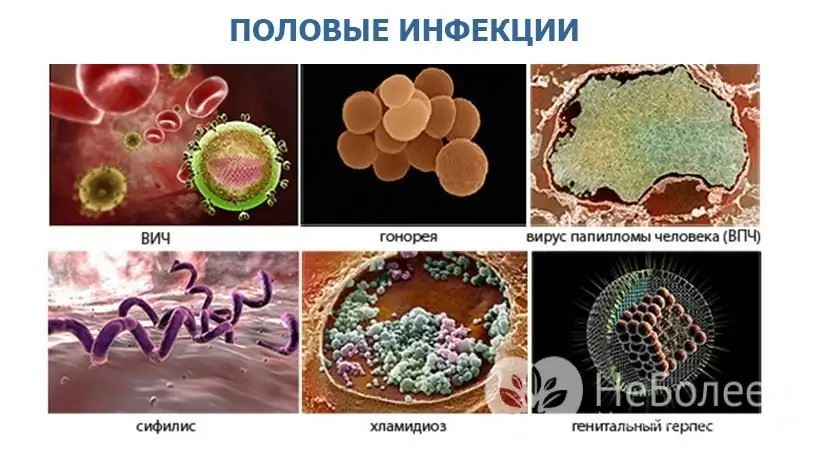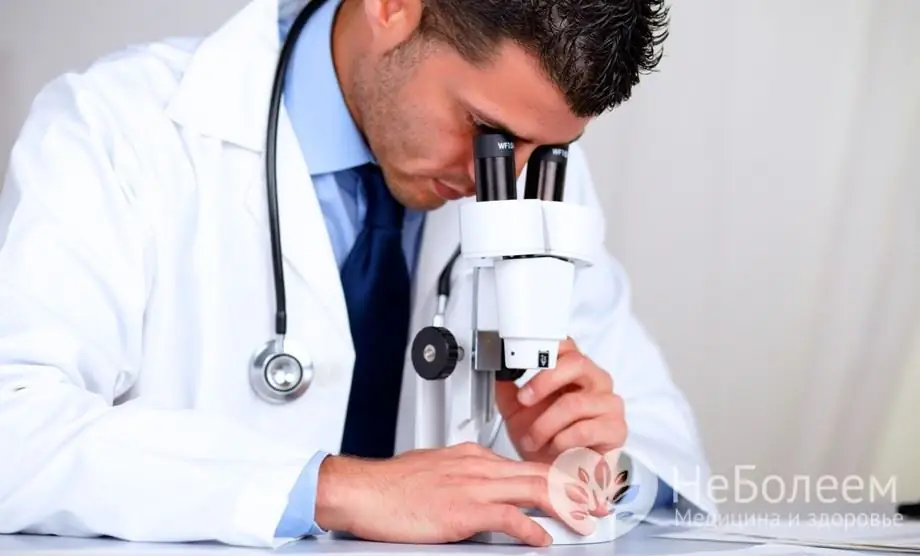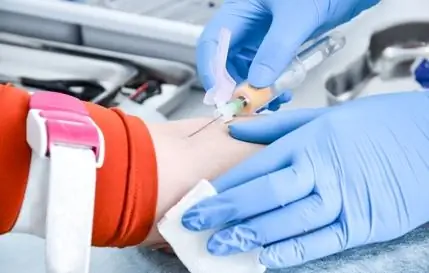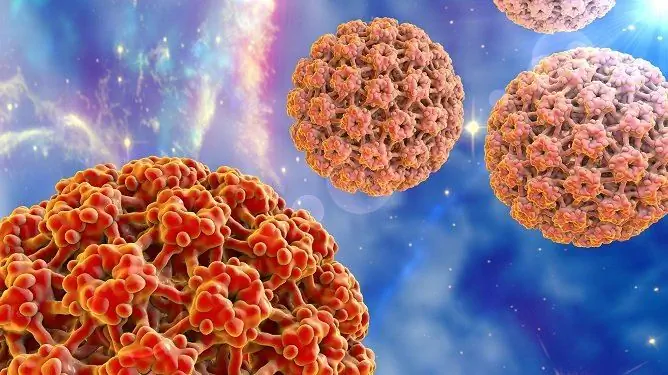- Author Rachel Wainwright wainwright@abchealthonline.com.
- Public 2023-12-15 07:39.
- Last modified 2025-11-02 20:14.
Tests for sexually transmitted diseases
A venereologist is a doctor who diagnoses and treats sexually transmitted infections (STDs). STDs are a large group of diseases caused by bacteria, viruses, protozoa that affect the urogenital tract.

Source: pro-uro.ru
Most STDs do not pose an immediate threat to life, however, an inflammatory process in the genital tract can lead to the development of serious complications, including infertility. The situation is aggravated by the fact that most often sexually transmitted infections (STIs) last a long time without any symptoms and reveal themselves only when the inflammation has gone too far. In this case, preventive examinations and regular tests are of particular importance.
How to get tested for sexually transmitted infections?
To get tested for STIs, you need to contact a venereologist for more details. After the initial examination and collection of anamnesis, the doctor will write a referral for the study of blood, urine, in men - sperm and a smear from the urethra, in women - a smear from the vaginal mucosa.
What tests are done to diagnose STDs?
In the diagnosis of sexually transmitted diseases, the following methods are the most informative:
- Study of a smear using PCR (polymerase chain reaction - a method that allows you to identify and identify pathogenic microorganisms that are not detected by other methods). It is used to diagnose chlamydia, mycoplasmosis, ureaplasmosis, trichomoniasis, herpes and human papillomavirus infection.
- Bacterioscopic analysis is a microscopic examination of a material for the detection of bacteria in it.
- Bacteriological research - sowing the material on nutrient media, followed by studying the colonies of pathogenic microorganisms and determining their sensitivity to antibacterial drugs.
- ELISA (enzyme-linked immunosorbent assay) is a blood test that detects antibodies to certain viral pathogens, including HIV, hepatitis B and C. This method also makes it possible to determine the stage of the disease.

Source: depositphotos.com
Syphilis tests
One of the most serious sexually transmitted infections in terms of its consequences is syphilis, which, unfortunately, is quite common. Doctors note that syphilis is now widespread, which has a subclinical course, that is, it proceeds without pronounced symptoms. Therefore, all patients admitted to hospital for treatment or referring to a venereologist are assigned a blood test for antibodies to treponema pallidum, the causative agent of syphilis (bladder cancer - microprecipitation reaction). If the result is positive, an in-depth diagnosis is carried out, including the following tests:
- Wasserman reaction;
- Dark-field microscopy of a smear from the urogenital tract;
- ELISA.
Fast diagnostics
The possibilities of modern diagnostics are very high, a comprehensive study that determines the presence of antibodies immediately to many pathogens of sexually transmitted diseases can be done by passing just one analysis. One blood sample detects antibodies to the most common STD pathogens.
You can get tested by a venereologist in Moscow every day from 9.00 to 21.00, seven days a week. Registration by phone 8 (495) 642-30-37
Found a mistake in the text? Select it and press Ctrl + Enter.






